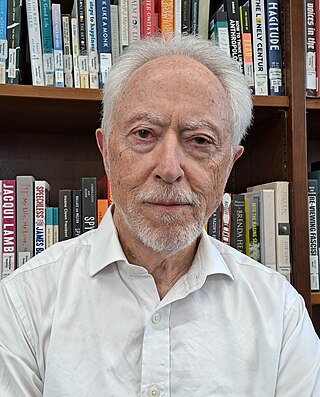
John Maxwell Coetzee FRSL OMG is a South African and Australian novelist, essayist, linguist, translator and recipient of the 2003 Nobel Prize in Literature. He is one of the most critically acclaimed and decorated authors in the English language. He has won the Booker Prize (twice), the CNA Literary Award (thrice), the Jerusalem Prize, the Prix Femina étranger, and The Irish Times International Fiction Prize, and holds a number of other awards and honorary doctorates.
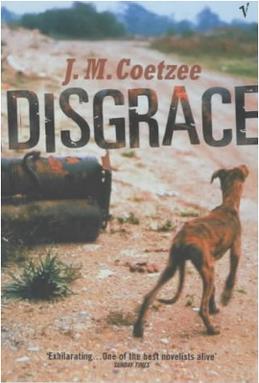
Disgrace is a novel by J. M. Coetzee, published in 1999. It won the Booker Prize. The writer was also awarded the Nobel Prize in Literature four years after its publication.
Gerald Murnane is an Australian novelist, short story writer, poet and essayist. Perhaps best known for his 1982 novel The Plains, he has won acclaim for his distinctive prose and exploration of memory, identity, and the Australian landscape, often blurring fiction and autobiography in the process. The New York Times described Murnane in 2018 as "the greatest living English-language writer most people have never heard of", and he is regularly tipped to win the Nobel Prize in Literature.
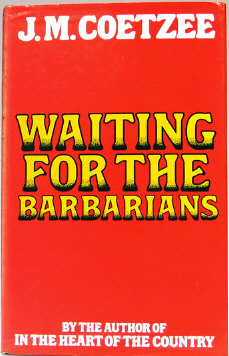
Waiting for the Barbarians is a novel by the South African writer J. M. Coetzee. First published in 1980, it was chosen by Penguin for its series Great Books of the 20th Century and won both the James Tait Black Memorial Prize and Geoffrey Faber Memorial Prize for fiction. American composer Philip Glass has also written an opera of the same name based on the book which premiered in September 2005 at Theater Erfurt, Germany.
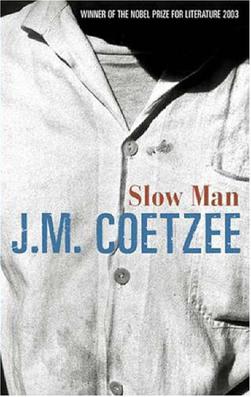
Slow Man is a novel by the South-African writer J.M. Coetzee and concerns a man who must learn to adapt after losing a leg in a road accident. The novel has many varied themes, including the nature of care, the relationship between an author and his characters, and man's drive to leave a legacy. It was Coetzee's first novel since winning the Nobel Prize in Literature in 2003. The novel was longlisted for the 2005 Man Booker Prize.

Adam Samuel James Foulds FRSL is a British novelist and poet.

Foe is a 1986 novel by South African-born Nobel laureate J. M. Coetzee. Woven around the existing plot of Robinson Crusoe, Foe is written from the perspective of Susan Barton, a castaway who landed on the same island inhabited by "Cruso" and Friday as their adventures were already underway. Like Robinson Crusoe, it is a frame story, unfolded as Barton's narrative while in England attempting to convince the writer Daniel Foe to help transform her tale into popular fiction. Focused primarily on themes of language and power, the novel was the subject of criticism in South Africa, where it was regarded as politically irrelevant on its release. Coetzee revisited the composition of Robinson Crusoe in 2003 in his Nobel Prize acceptance speech.

Wolf Hall is a 2009 historical novel by English author Hilary Mantel, published by Fourth Estate, named after the Seymour family's seat of Wolfhall, or Wulfhall, in Wiltshire. Set in the period from 1500 to 1535, Wolf Hall is a sympathetic fictionalised biography documenting the rapid rise to power of Thomas Cromwell in the court of Henry VIII through to the death of Sir Thomas More. The novel won both the Booker Prize and the National Book Critics Circle Award. In 2012, The Observer named it as one of "The 10 best historical novels".

The Death of Jesus is a 2019 novel by J.M. Coetzee.

Summertime is a 2009 novel by South African-born Nobel laureate J. M. Coetzee. It is the third and final instalment of Scenes from Provincial Life, a series of fictionalized memoirs by Coetzee and details the life of one John Coetzee from the perspective of five people who have known him.

The Corrections is a 2001 novel by American author Jonathan Franzen. It revolves around the troubles of an elderly Midwestern couple and their three adult children, tracing their lives from the mid-20th century to "one last Christmas" together near the turn of the millennium. The novel was awarded the National Book Award in 2001 and the James Tait Black Memorial Prize in 2002.
Michael Gorra is an American professor of English and literature, currently serving as the Mary Augusta Jordan Professor of English Language and Literature at Smith College, where he has taught since 1985.

Kevin Powers is an American fiction writer, poet, and Iraq War veteran.
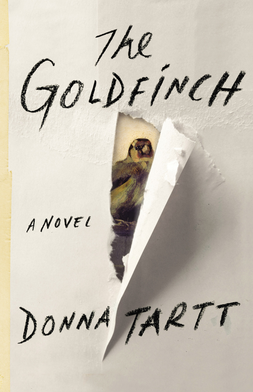
The Goldfinch is a novel by the American author Donna Tartt. It won the 2014 Pulitzer Prize for Fiction, among other honors. Published in 2013, it was Tartt's first novel since The Little Friend in 2002.
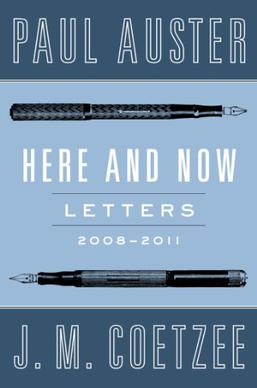
Here and Now: Letters (2008–2011) is the published collection of letters between the authors Paul Auster and J. M. Coetzee.

Inland is a novel by Gerald Murnane, first published in 1988. It has been described as one of Murnane's greatest and most ambitious works, although some reviewers have criticised its use of repetition, lack of clear structure and reliance on writing as a subject matter. Reviewing the book in 2012, J. M. Coetzee called it "the most ambitious, sustained, and powerful piece of writing Murnane has to date brought off".

The Schooldays of Jesus is a 2016 novel by J. M. Coetzee. In July 2016, it was longlisted for the 2016 Man Booker Prize.
J. M. Coetzee is a South African-born novelist, essayist, linguist, translator and recipient of the 2003 Nobel Prize in Literature. He has also won the Booker Prize twice, the Jerusalem Prize, CNA Prize (thrice), the Prix Femina étranger, the Irish Times International Fiction Prize, as well as many other awards and honours, and he holds a number of honorary doctorates and is one of the most acclaimed and decorated authors in the English language.
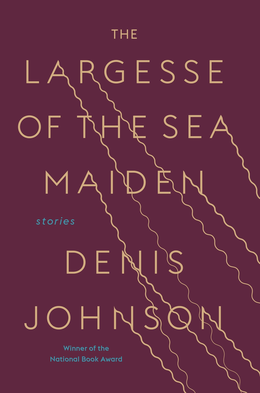
The Largesse of the Sea Maiden: Stories is a 2018 short story collection by Denis Johnson. It was published posthumously on January 16, 2018, by Random House. It consists of five short stories, three of which were previously published in The New Yorker and Playboy. Johnson finished the collection a few weeks before his death in May 2017.

The 2003 Nobel Prize in Literature was awarded to the South African novelist John Maxwell Coetzee, better known simply as J. M. Coetzee, "who in innumerable guises portrays the surprising involvement of the outsider." He is the fourth African writer to be so honoured and the second South African after Nadine Gordimer in 1991.

















